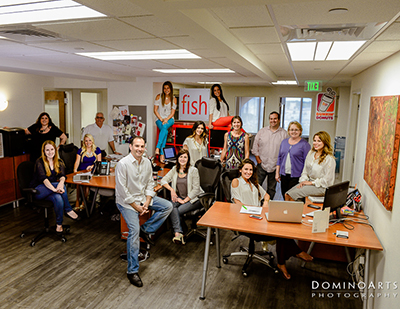Many students would like to excel in science, and, in a country that has always exalted scientists, and can thank them for many of its innovations ranging from the combine harvester to GPS technology, excelling in science is something of a dream for many.
How Science Students Can Excel and Reach the Hall of Fame
That said, excelling in science is not necessarily easy. It takes work and lot of determination. As a science student in college, you might be wondering how you too can excel and, through a science career, find your name into the science hall of fame. In this article, we will give you a few valuable tips that you can use to succeed in science as a college student.
Participate in class
Whatever you do, never take your time in class for granted. Some students think that that is the perfect time to prepare for the next class, right as lecturers are in the middle of teaching. They are wrong. There’s never a better time to learn something new than when the teacher is discussing it in class. It would take longer to learn and understand it on your own. It also makes it easier for you to ask questions directly when you feel lost.
Accept that there may not be a right answer
The general trend in school is that there is often one and only one correct answer. One checkbox to tick on that multiple-choice question. The truth is that, in science, there are often many answers, and sometimes there are none, because we haven’t yet figured everything out. It’s therefore important for you to be comfortable with uncertainty, and complex answers to simple questions.
For example, when you’re doing lab work, don’t be so hung up on getting the results expected of you. Any data you get from an experiment is valid data. Many of the greatest discoveries in experimental science have been due to these so-called mistakes.
Speak in your groups
Science, despite the popular archetype of the lone genius, is a collaborative effort. It is done with others, whether you’re working on a group project or doing lab work. It is important to speak up in order to be heard. If you have a problem, the last thing you want to do is stay quiet. You need to make sure you understand what others are saying in the group, even if it means paraphrasing their words.
Another thing you should do is to keep track of group dynamics and speak up when you’re uncomfortable about them. If you feel people are working too fast, or someone wants everything done their way, or someone is joy riding and making no meaningful contributions, speak up. If things don’t work out, voice your concerns to your lecturer and let them move you to a group you feel more comfortable working with.
Read from many sources
As much as it is good to pay attention to the lecture, you shouldn’t just leave it at that. Seek information about a topic from as many different sources as you can. We live in the age of the internet, which puts the latest information at your fingertips. Use it to supplement your studies by reading from good source of science essay examples. You will find enlightenment this way.
Ask “Why” as often as you can
While a lot of focus is put on the what, who, where, how, and when, it is just as important for you to ask the why. School has made it normal to memorize, rather than question and chase one’s curiosity. Do not fall into that trap. Try to find out why things are the way they are, and find examples to help you understand. Don’t take Newton’s Laws of Motion at face value. Instead, find out why they are so, and seek examples that make them easier to understand in your mind. You might find a lot of interesting ideas down such rabbit holes that will prove useful in your career as a scientist.
Read Also: Ultimate Guide to Choosing the Best Pellet Smoker Grill
Work on your math skills
Science, for all its greatness, wouldn’t be as great were it not for the math upon which it stands. You need to know how to work with numbers, considering the fact that much of science has to do with collecting data and trying to glean valuable insights from it. Don’t waive the math classes. Take them; they’ll prove immensely valuable for your science classes.
Conclusion
And with that we come to the end of our little article about how to succeed in science as a college student. As you can see, much of it boils down to diligence. If you get the little things right, consistently, the big things will easily fall into place.
Author Bio
Robert Everett is a writer and editor who loves to discuss topics related to education, science, and technology. He loves to give readers valuable insights through his writings and make science and technology concepts accessible to all. When not writing, he loves to practice yoga.







